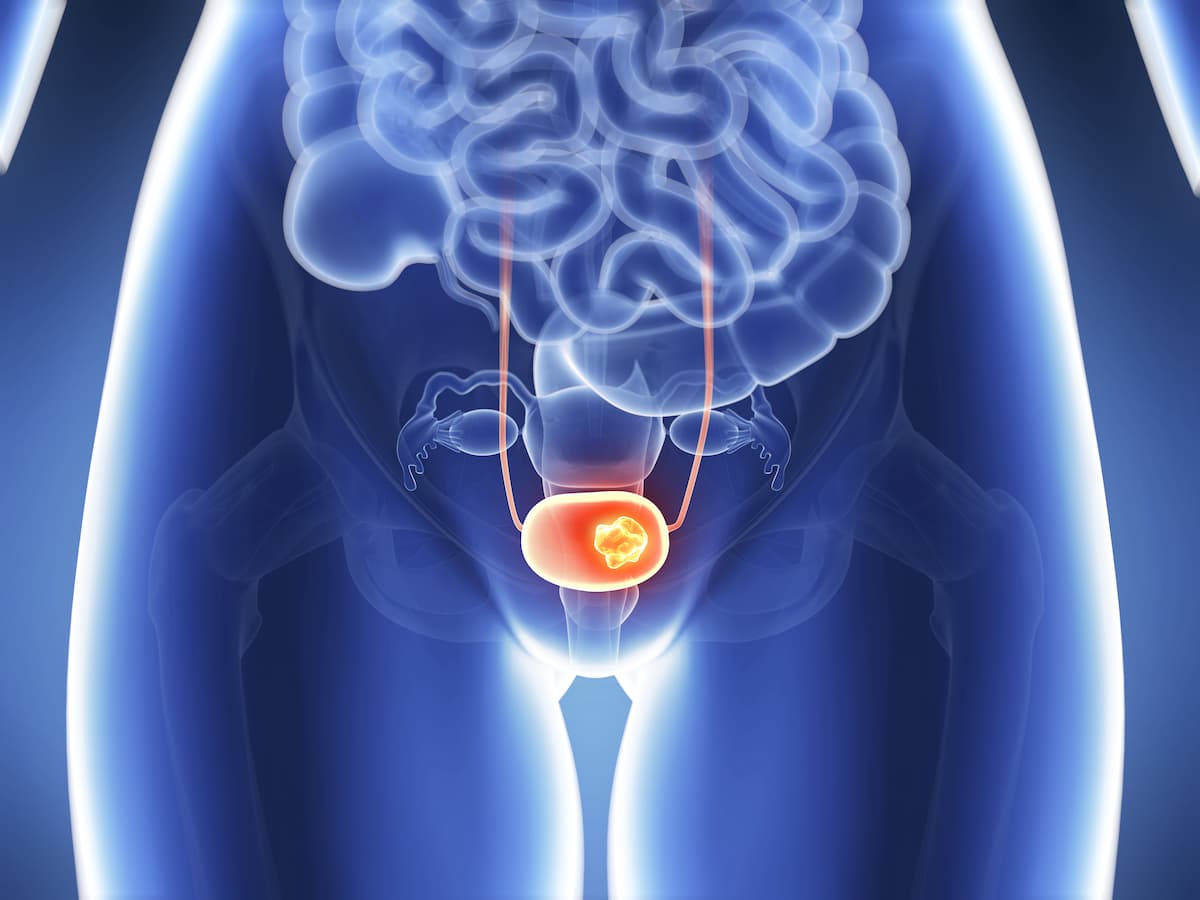Select Molecular Subgroups May Predict ICB Responses in Bladder Cancer
Factors including ARID1A mutations and tumor mutational burden appear to correlate with progression-free survival and overall survival following immunotherapy for advanced bladder cancer.
Whole-exome genome sequencing on tumor specimens revealed genetic molecular subtypes in advanced bladder cancer that correlated with patient response to immune checkpoint blockade, suggesting that this strategy may aid treatment decision making in this patient population, according to findings from a study published in Journal of Clinical Oncology.
"Our study proposes a novel molecular subtyping of bladder cancer on the basis of genetic features easily quantified using DNA," according to the authors of a study published in the Journal of Clinical Oncology.

Investigators identified a notable correlation between ARID1A mutations and positive progression-free survival (PFS; HR, 0.43; 95% CI, 0.25-0.73; P = .002) and overall survival (OS; HR, 0.52; 95% CI, 0.29-0.92; P = .025) outcomes following immune checkpoint blockade.
A tumor mutational burden (TMB) of higher than approximately 3 mut/Mbp correlated with improved PFS (HR, 0.44; 95% CI, 0.21-0.92; P = .003) and OS (HR, 0.55; 95% CI, 0.26-1.15; P = .08) following immune checkpoint blockade therapy. Intratumoral heterogeneity also strongly correlated with immune checkpoint blockade PFS outcomes using the top 20% as a threshold (HR; 2.05; 95% CI, 1.18-3.56; P = .011).
Patients with a high nonsynonymous to synonymous mutations in the immunopeptidome had superior PFS following immune checkpoint blockade therapy (HR, 0.46; 95% CI, 0.23-0.92; P = .029). Based on the top 20% to 25% of the tumor cell purity threshold, investigators reported a strong correlation between high tumor cell purity and poor PFS following immune checkpoint blockade (HR, 1.89; 95% CI, 1.09-3.26; P = .022).
Investigators defined a total of 4 molecular subtypes demonstrating differential sensitivity to immune checkpoint blockade therapy in bladder cancer. These subtypes included tumors with low TMB (subtype 1); tumors with high TMB and high tumor cell purity (subtype 2); tumors with high TMB, low tumor cell purity, and that were ARID1A mutant (subtype 3); and tumors with high TMB, low tumor cell purity, and that were ARID1A wild type (subtype 4).
“Our study proposes a novel molecular subtyping of bladder cancer on the basis of genetic features easily quantified using DNA,” the study authors stated. “This approach can be adapted to targeted sequencing panels and clinical [whole-exome sequencing]. The stability of DNA enhances the feasibility of our approach in clinical environments.”
Investigators of the study performed whole-exome sequencing on available tumor specimens from 88 patients who received treatment with immune checkpoint blockade for advanced bladder cancer. Efficacy end points included PFS and OS.
The association between the novel molecular subtypes and clinical benefit with immune checkpoint blockade therapy was validated in an independent patient cohort from the phase 2 IMvigor210 trial (NCT02108652) and in patients who did not receive immune checkpoint blockade therapy in the Cancer Genome Atlas (TCGA) bladder cancer cohort.
Of the 4 molecular subtypes, subtype 1 demonstrated the worst outcomes with a median PFS of less than 6 months, whereas subtype 3 had the longest PFS.
Using the IMvigor210 validation cohort, investigators noted strong correlations between high tumor cell purity (HR, 1.60; 95% CI, 1.10-2.32; P = .014), TMB (HR, 0.62; 95% CI, 0.45-0.85; P = .003), and ARID1A mutations (HR, 0,60; 95% CI, 0.39-0.92; P = .020) and OS outcomes as observed in the original study cohort. Classification into subtypes 1 to 4 also distinguished OS in the IMvigor210 cohort, validating findings in the original cohort.
In the TCGA cohort—containing patients with primarily localized disease—the most common molecular subtype was subtype 2 which correlated with superior survival. Additionally, subtype 3 patients did not have significantly better outcomes compared with subtype 4 patients.
“Our finding that subtype 2 was more frequent and associated with better survival in the TCGA cohort may suggest that high TMB and high purity tumors are associated with a propensity to progress more slowly or metastasize less frequently,” the study authors stated.
Reference
Sarfaty M, Golkaram M, Funt SA, et al. Novel genetic subtypes of urothelial carcinoma with differential outcomes on immune checkpoint blockade. [published online ahead of print, 2023 Mar 16]. J Clin Oncol. Published online March 16, 2023. doi:10.1200/JCO.22.02144
Prolaris in Practice: Guiding ADT Benefits, Clinical Application, and Expert Insights From ACRO 2025
April 15th 2025Steven E. Finkelstein, MD, DABR, FACRO discuses how Prolaris distinguishes itself from other genomic biomarker platforms by providing uniquely actionable clinical information that quantifies the absolute benefit of androgen deprivation therapy when added to radiation therapy, offering clinicians a more precise tool for personalizing prostate cancer treatment strategies.